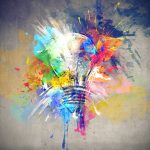 Artificial intelligence (AI) was built to solve problems, boost productivity, and drive innovation. But the rise of generative AI—such as ChatGPT and DALL-E—has raised concerns that machines could replace key human skills.
Artificial intelligence (AI) was built to solve problems, boost productivity, and drive innovation. But the rise of generative AI—such as ChatGPT and DALL-E—has raised concerns that machines could replace key human skills.
A study from the University of South Australia looks at the relationship between AI and creativity. It finds that while AI can produce creative-looking work, it still depends on human input. This has big implications for education, jobs, and the future of work—offering some comfort to those worried about AI taking over.
Understanding the technology
Still, the findings pose a challenge. Employers and educators need to understand these new technologies so they can help workers and students keep up. Generative AI is advancing quickly, with ChatGPT (a text generator) and DALL-E (an image generator) leading the way. A new Chinese competitor, DeepSeek, has also entered the market. The key is learning how AI can support, rather than replace, human skills.
Many have assumed that machines would take over routine, predictable tasks, leaving humans to do creative and complex work. But if AI can be creative too, that assumption may not hold. The researchers argue that AI should be seen as a tool rather than a replacement—something that still needs human guidance.
A simple example makes this clear. If you ask an AI to paint the Mona Lisa with a modern twist—say, a young woman scrolling through her phone—it will produce a convincing image. But this doesn’t mean the AI is creative. The originality is in the idea; the AI simply carries it out. In other words, it saves the user the trouble of learning how to paint, but it doesn’t invent new concepts on its own.
Rapid growth
AI use is growing fast in Australia. Nearly 40% of employees already use it at work, and one in five have doubled their use over the past year. Yet only 20% believe their company is making full use of its potential.
More research is needed to find the best ways AI can support human skills. Early claims that AI could match human creativity now seem exaggerated. Instead, a more balanced view is emerging: AI is great at handling data, spotting patterns, and evaluating ideas against set criteria. By taking over routine work, it allows people to focus on deeper creative thinking.
Generative AI is impressive, but it doesn’t act on its own. Whatever it produces depends on what a person asks for. AI is a tool—one that still needs a human hand to guide it.